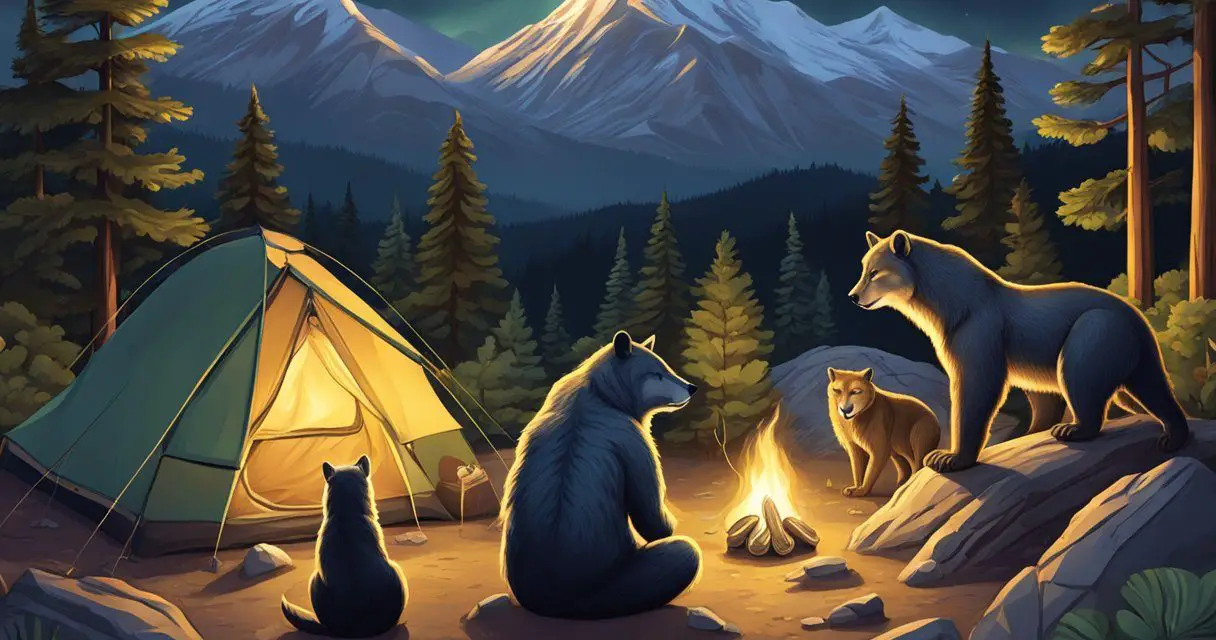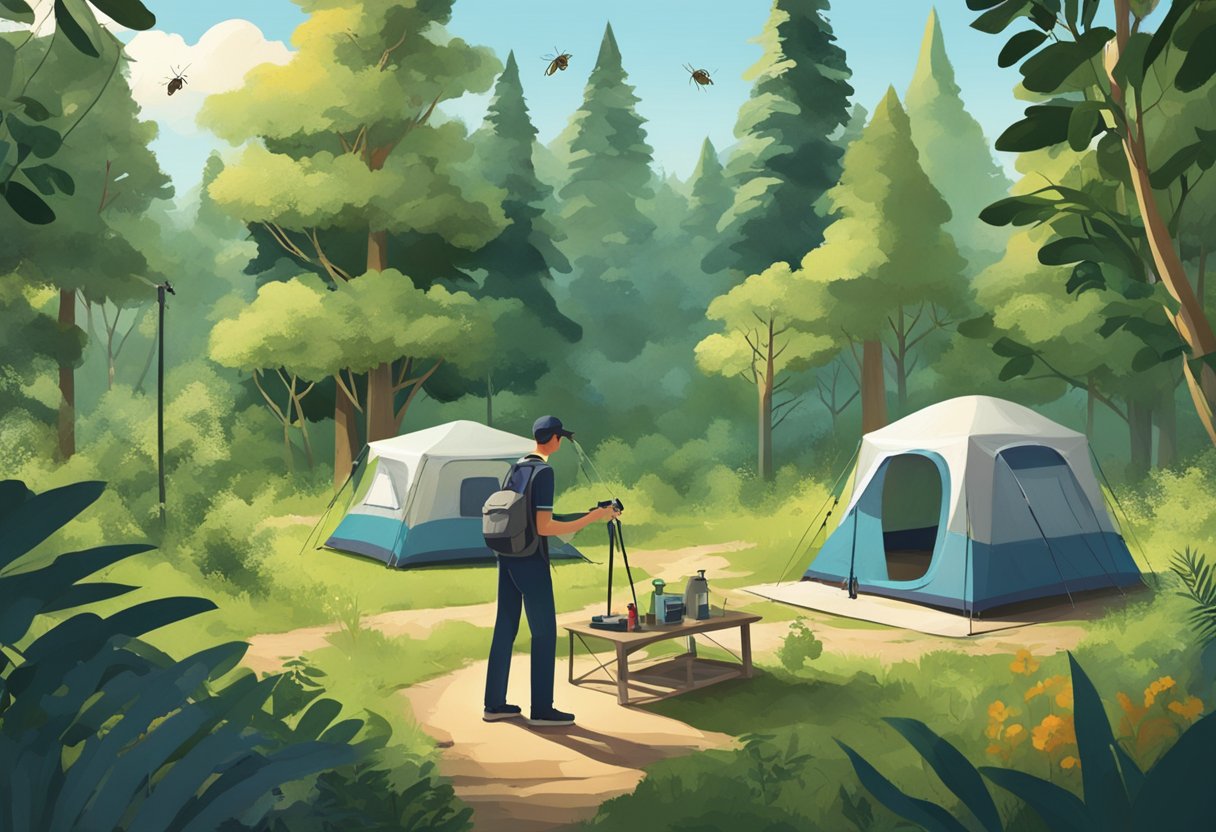When you’re heading out for a camping trip, there’s a lot to look forward to—scenic views, fresh air, and some peace and quiet. But the outdoors also comes with its own set of challenges, especially when it comes to wildlife.
Knowing which animals to watch out for can help keep you, your group, and your campsite safe. Whether you’re in the forest, mountains, or desert, it’s smart to be aware so your adventure goes smoothly.
1) Bears – avoid leaving food out and store it properly
If you’re camping where bears are around, don’t leave food or anything scented out in the open. Bears have a strong sense of smell and will wander into campsites looking for an easy meal.
Store your food in bear-resistant containers or use a bear canister if you’re backpacking. If that’s not possible, hang your food at least 10 feet off the ground and 4 feet away from tree trunks or branches.
This isn’t just about food itself—anything with a scent, like toiletries or garbage, should be secured the same way. Double bagging items can help reduce odors, but it doesn’t replace proper storage.
Try to avoid cooking near your tent, and do not keep any food in your tent with you, even for a short time. Set up your eating area at least 100 feet away from where you sleep.
It’s also smart to clean up right after you eat. Wash dishes promptly and dispose of scraps in bear-proof trash containers or pack them out if required.
2) Raccoons – they’re sneaky and love raiding campsites for snacks
When you’re camping, raccoons are one of the most common animals you’ll run into. These little animals are more clever than many people expect and have no problem getting into food that’s left out.
Raccoons mostly come out at night, searching for any easy meal. If you leave snacks or trash lying around, they’ll find it fast. Even closed coolers and bags aren’t always safe because raccoons can open zippers and latches.
To avoid attracting them, always put your food away when not in use. Lock it in your car or hang it from a tree branch, if possible. Don’t forget to seal your trash, too, since smells will bring them straight to your site.
A clean campsite is the best way to avoid late-night visitors. When raccoons can’t find anything, they usually move on without much fuss. You don’t want to wake up to scattered food wrappers or missing snacks, so it’s worth a little extra effort before bed.
3) Snakes – watch where you step, especially in tall grass or rocks
When you’re camping, snakes can be easy to miss. They often hide in tall grass, under rocks, or in thick underbrush. Always watch your step, especially if you’re moving through areas where the ground isn’t clearly visible.
Try to avoid walking in tall grass or poking around large rocks and logs unless you can see what’s underneath. Snakes like these spots because they are cool and hidden during the day.
It’s a good idea to glance down as you walk and move carefully. If you need to move a log or large rock, use a stick first instead of your hands. This way, you reduce the chance of startling a snake and getting bitten.
Be extra cautious at night or in low light, since snakes can be harder to spot. If you’re sitting down for a break, check the area first. A little extra attention goes a long way in avoiding unwanted encounters.
4) Scorpions – check your shoes and bedding in desert areas
If you’re camping in desert areas, scorpions are something you want to keep in mind. They tend to hide during the day and come out at night when it’s cooler, so you probably won’t see them moving around much in the sunlight.
It’s smart to shake out your shoes, clothes, and bedding before using them. Scorpions like to crawl into dark, cozy spots to rest, and your gear makes a perfect hiding place. By checking first, you lower your chances of a surprise sting.
Keep your tent zipped up at all times and avoid leaving gear or shoes sitting outside overnight. If you’re using a sleeping bag or tarp directly on the ground, double-check everything before getting in.
Make it a habit to also inspect backpacks and other gear, especially if they’ve been sitting around. Simple checks can help you camp more comfortably and reduce your worries about scorpions.
5) Mosquitoes – bring bug spray to keep the itch away
Would you like to save this article?
Mosquitoes are a common annoyance any time you’re camping, especially near water or in wooded areas. Their bites are itchy and can sometimes lead to bigger problems, like skin irritation or even the spread of diseases.
To avoid getting covered in bites, always pack a reliable bug spray. Options containing DEET are widely used, but if you’d like something more natural, look for sprays with citronella or peppermint.
Apply the repellent to all exposed skin, and don’t forget to reapply every few hours, especially if you’re sweating or after swimming. Lightweight, long-sleeved shirts and pants also add another layer of protection.
Mosquitoes are most active at dawn and dusk, so set up your tent early and try to keep the entrance zipped to prevent them from joining you inside. Mosquito nets and portable repellent devices can also help make your campsite more comfortable.








